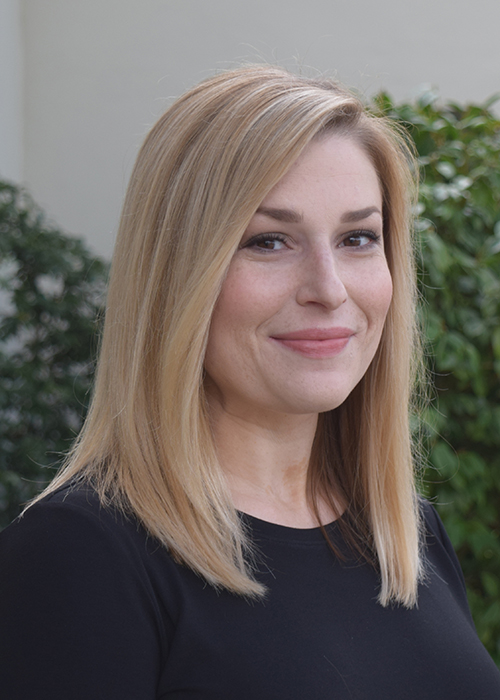By Erica Ho, Research and Education Associate
At TREC, we have assembled a new group of researchers working in transplantation called the TREC Fellows. Over the next few weeks, we will introduce you to each one by summarizing an interview with them conducted by different staff members in the lab. Last time, we learned about Terri Menser and her experience with kidney transplantation research. This week we had the chance to talk to Ashley Feinsinger, PhD about her research in ethics and kidney transplantation research, among other topics.
With a PhD in Philosophy from UCLA and years of experience in teaching and research, Dr. Feinsinger brings expertise in bioethics, medicine, and philosophy to her work as a TREC fellow. During our interview, Dr. Feinsinger discussed her current projects, the importance of ethics in transplantation, what influenced her to join TREC, and what she hopes to achieve in the future here.
When asked about her current work, Dr. Feinsinger talked about several important projects. First, she shared about her collaboration with researchers in the Department of Neurosurgery on a large, NIH-funded project on the importance and ethics behind nontherapeutic brain research. She explains, “[it’s] research that doesn’t offer any therapeutic or clinical benefits…it’s just to understand the brain… and how the brain works.” This project is still in its beginning stages, but Dr. Feinsinger believes it is a great example of how ethics, research, and medicine can merge together such that if we can understand the brain better, we can learn how to provide healthcare in ways that aligns with informed decision-making for patients.
Another project Dr. Feinsinger is working on is with another TREC fellow, Dr. Cristina Farkas-Skiles, who is a pediatric nephrology fellow at UCLA with an interest in researching barriers to transplant and psychosocial determinants of health. This project involves identifying and understanding the barriers to getting on the transplant waitlist for children. They are doing this by interviewing doctors and patients about their perspectives on and experiences with waitlisting and complex cases, exploring the ethical implications of these experiences, and proposing practical steps for equitable waitlisting. Dr. Feinsinger’s main responsibility is to support Dr. Farkas-Skiles’ work by exploring the ethics around reasons why a doctor may not recommend their patient to be waitlisted. From this project, the research team hopes to expand the discussion around waitlisting barriers and mitigate as many as possible. Some examples Dr. Feinsinger gives are thinking about whether a person with a higher IQ should be put higher on the waitlist than a person with a lower IQ or how organ scarcity is relevant. Difficult ethical topics like this can prompt disagreement among doctors and brings up the issue of unequal access to healthcare. This is why it is important for researchers like Dr. Feinsinger to explore these hard questions.
When asked to explain how she believes her background in bioethics and philosophy relates to transplantation research, Dr. Feinsinger explained that there is ethics involved in every stage of transplantation. She says, “most people think… the main issue for ethics in transplant… [is] about justice and fairness in a distribution of resources”. There is no doubt that determining who can and cannot receive a kidney requires a lot of ethical review, but there are ethics involved in all the other stages of the transplant journey. This includes appropriate ways to ask people to be a donor, barriers to getting on a waitlist, and whether or not some barriers are permissible.
Since ethics and transplant are so deeply interrelated, Dr. Feinsinger undoubtedly brings an invaluable perspective as a TREC fellow. Dr. Feinsinger decided to join the TREC fellows group after speaking with Dr. Farkas-Skiles and Dr. Amy Waterman. Dr. Farkas-Skiles told her about a new collaborative work group and believed Dr. Feinsinger would be a good fit with her strong bioethics background. Dr. Feinsinger has also worked with Dr. Waterman in the past and has had meaningful conversations about ethics and patient care with her. On her experience as a TREC fellow, Dr. Feinsinger says, “it… reminded me what I love about my job.” She is drawn to the innovative atmosphere where the fellows gather to discuss ideas, support each other, and make connections. She also appreciates being in a collaborative space where people share a similar interest and can “build scholarship together”. Dr. Feinsinger also believes that groups like this are hard to come by for someone in her field, saying, “I work in medicine but I do philosophy so I sometimes tend to be on my own, so it’s nice to be part of a group where people have an interest in ethics and people have projects that I can collaborate and give to. That’s been very nice for me.” It’s important to her to be part of a group with diverse interests, where everyone’s differences make them valuable. Dr. Feinsinger says that the fellows program is a valuable collaboration, describing collaborative work in general as “the best way to do ethics, science, and research.” She wants to see more centers consider forming groups like this of their own and inspire more scholars to be collaborative and innovative in other fields. In the future, Dr. Feinsinger hopes to do more work with TREC and opportunities to work with Dr. Waterman on large, integrative studies involving ethics and kidney transplant.

